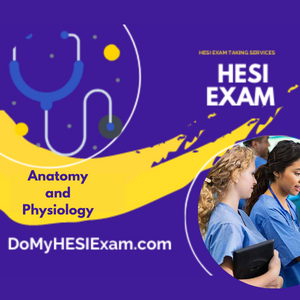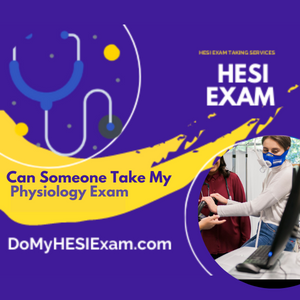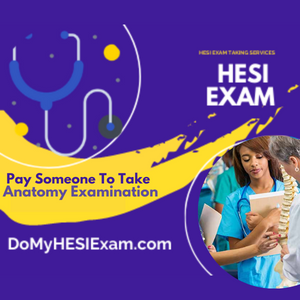How can I adapt my study strategies for addressing the specific challenges posed by the digestive system and its functions?
How can I adapt my study strategies for addressing the specific challenges posed by the digestive system and its functions?

 Anatomy, on one hand, involves studying visible body parts while physiology considers their function. Both disciplines are interlinked; to fully grasp anatomy one must also possess knowledge of physiology.
Anatomy, on one hand, involves studying visible body parts while physiology considers their function. Both disciplines are interlinked; to fully grasp anatomy one must also possess knowledge of physiology.
Attend classes regularly and attend each lecture carefully while taking detailed notes. This is the best way to study Anatomy and Physiology!
Preparing for this examination requires using different study methods that suit your learning style – study groups, flashcards or practice exams can all help prepare for this examination.
This exam comprises 25 questions with a time limit of 25 minutes for each section: English language (vocab and general knowledge), grammar (parts of speech identification, grammatical errors detection and word usage analysis), biology (photosynthesis, metabolism cells respiration).
Assistance in taking the HESI exam may seem intimidating, but it’s essential for success. Hiring a professional to administer it is a great way to Relieve Stress and boost confidence – not to mention increase your chances of entering nursing school or other healthcare fields with higher scores on this test!
Anatomy and Physiology exams are crucial to students aspiring to be physicians. Although the subject can be challenging, students who put forth effort and dedication may pass this exam with flying colors. There are multiple ways students can prepare for this examination such as attending lectures, taking notes, studying with groups or using past exams as resources as well as flashcards for memorization purposes.
No matter if you are studying biology for pre-med or anatomy and physiology for medical school, online resources offer an effective means of study for these subjects. There are plenty of free practice tests and tools that can help prepare you for exams; as well as detailed statistics to show you how well each question was scored; these stats allow you to easily determine what areas need more focus for improvement and you may even retake if dissatisfied with your score.
Study groups provide an effective means of reviewing course material alongside classmates and peers. Study groups are an effective way of identifying any gaps in your understanding, improving listening skills by comparing notes. Furthermore, they can offer feedback on homework problems or practice exams so you understand how best to approach these challenges.
When organizing a study group, it’s essential that all members can meet at a time that meets their commitments and schedules. Furthermore, you should set an agenda and Assign Tasks so as to keep sessions productive while reviewing relevant material.
Small study groups of four to six members work best, to minimize socialization while covering more material more quickly. Furthermore, smaller groups tend to stay organized better. It might also be beneficial to check online forums or discussion boards for classmates taking similar courses.
If you are studying Physiology, online practice exams are an invaluable way to increase your score and build confidence in taking the exam. They also identify areas in which to focus your study efforts.
Physiology is the scientific discipline that studies how human bodies operate. It studies the interplay between biological, chemical, and physical systems to explain normal bodily processes; such as maintaining an ideal temperature level in your body while adapting to its external environments or managing blood sugar levels. Physiologists have gained much insight into this discipline since its birth.
Aspiring doctors, nurses, or physical therapists of any stripe should possess a solid knowledge of anatomy and Physiology Success in their careers. Making time and energy investments into this subject promotes personal development and self-confidence while increasing future academic performance and professional pursuits – the payback can last well into adulthood!
Studying together will increase productivity and motivation while keeping you committed to an academic schedule.
With this knowledge of anatomical structures as the basis for studying physiology – which studies bodily mechanisms responsible for bodily functions – it also gives students an advantage when approaching other disciplines like physiology or medicine.
When selecting an Anatomy and Physiology tutor, be sure to carefully consider their subject knowledge, session fee information, testimonials from previous students, similar life experiences to your own and any personal or professional goals they might share with you.
Study guides can be an excellent way to boost students’ test scores. They allow them to concentrate on what’s essential and avoid skimming over content; in turn, this may prompt essay or discussion topics for Writing Purposes; for instance, those studying biology might create a table listing key features of viruses in order to better remember important points.
Study guides offer another advantage to students: an outline of what will be covered on an exam. This can be particularly beneficial to those who find it hard to synthesize information, who can then use their outline as a springboard for creating questions for themselves on test day.
The best study guides are user-friendly and provide visual aids. Students who learn better through reading can organize their study guide into sections with headings and subheadings, bullet points or numbered lists to facilitate navigation, colors or highlighting can all serve to strengthen comprehension and memory retention.
HESI examination candidates have many ways they can enhance their exam-taking skills. A calculator may come in handy with math problems; rounding answers one number after decimal point should also be avoided as much as possible; reviewing root words helps memorize drug categories more efficiently allowing candidates to recall which group a drug belongs to, its side effects and how it functions in their body.
When studying for an anatomy test, there are various strategies students can employ to make learning more engaging. Analogies, writing notes in a notebook or creating a mind map of the human body are all ways of making studying more enjoyable; using them may help better comprehend what material they’re studying While Increasing chances of passing the exam.
One way for students to better comprehend the material is to search online resources. Such sites can provide helpful advice about how to study for an anatomy exam and provide practice quizzes with answer explanations.
Anatomy and Physiology courses are required of anyone hoping to break into the medical field, yet can be daunting subjects for students with no previous experience with them. With some smart studying strategies in your arsenal, however, these classes will be managed successfully.
Review course materials often, particularly before lectures. Doing this will ensure the material makes sense during class and the exam day, and create notecards that summarize similar information, simple line diagrams, or create mnemonics as possible tools of study.
Pay Someone To Take Anatomy Examination
 Students interested in medical careers must take an Anatomy Exam. Though preparing can be daunting, various tools such as flashcards, study groups and practice tests exist to assist candidates.
Students interested in medical careers must take an Anatomy Exam. Though preparing can be daunting, various tools such as flashcards, study groups and practice tests exist to assist candidates.
Online testing enables students to achieve effective results at an economical price range. Online testing experts possessing extensive expertise are capable of handling quizzes, exams and tests without any difficulty or stress.
There are various online study guides available for students looking to better comprehend anatomy and physiology concepts. These tools may come in useful in various ways depending on a student’s learning style – some might provide more visual help while others could include interactive elements with practice questions. It is important to remember the various learning styles when selecting a guide; doing so can ensure greater retention.
One helpful tool is an online anatomy & physiology quiz, in which a student answers multiple-choice questions with instant feedback on their answers. This can provide practice in preparation for exams as well as help students identify which structures to focus on for exams. An anatomy flashcard set can also help students remember names of structures, their origins, insertions and functions with cards that display images on one side and names on the other – ideal if students struggle with memorizing this material!
One Effective Strategy may include making an anatomy flashcard or using mobile applications with questions for practice; taking practice tests to identify areas which need further study can also be effective ways.
Adjusting the method and resources you use when studying will maximize your time spent studying, while reinforcing concepts in your mind. If using textbooks, try switching up which chapters are studied daily. There are also numerous online anatomy resources with practice tests and quizzes that provide invaluable support.
Each scholarship has different criteria and requirements; students should evaluate their eligibility early so as to meet any deadlines set by scholarship providers.
The Eric Glasgow Anatomy Bequest Summer Research Scholarship gives students an incredible opportunity to engage in professional dissection or 3D specimen printing over their summer break, providing real-life experience of an academic research career. It is named in honour of Professor Eric Glasgow AO who was internationally-recognized as an outstanding Monash University anatomy teacher; his passion and enthusiasm inspired his students.
This scholarship is open to current ES undergraduates and combined BS/DPT students who must take PAS 407 Human Gross Anatomy. Applications open 1 September and close 14 September.
The HESI anatomy exam assesses students’ knowledge of body parts and their functions, often taken by medical school students or those required to take this subject in other programs. The exam features questions covering muscle anatomy, skeletal structure, nervous system anatomy and cell organelles; clinical case reviews as well as section exams are included that don’t count towards final course grades and students can receive formative feedback through an online questionnaire and survey of course resources.
How can I adapt my study strategies for addressing the specific challenges posed by the digestive system and its functions?
What are the best techniques for studying the principles of brain lateralization and the functions of the left and right
How should I review and comprehend the functions of the esophagus and its role in food transport for the digestive
What are the most critical concepts for understanding the principles of neuronal transmission and the role of neurotransmitters in brain
How can I enhance my knowledge of the principles of cell-mediated immunity and go to this web-site role of natural
How do I differentiate between the various types of synapses, including electrical and chemical synapses, in the nervous system? What
What is the importance see this site understanding the principles of blood vessels, including arteries, veins, and capillaries, and their
How should I prepare for questions related to the principles of hormonal regulation of thyroid function and the synthesis of
What are the key concepts for differentiating between the various types of gastric glands and their secretions in the digestive
How can I ensure I remember the anatomical features and functions of the tonsils and their role in immune surveillance
Access HESI exam services to support university students in achieving academic success and preparing for their healthcare-related assessments.

![]()
Copyright © All rights reserved | Do My HESI Exam